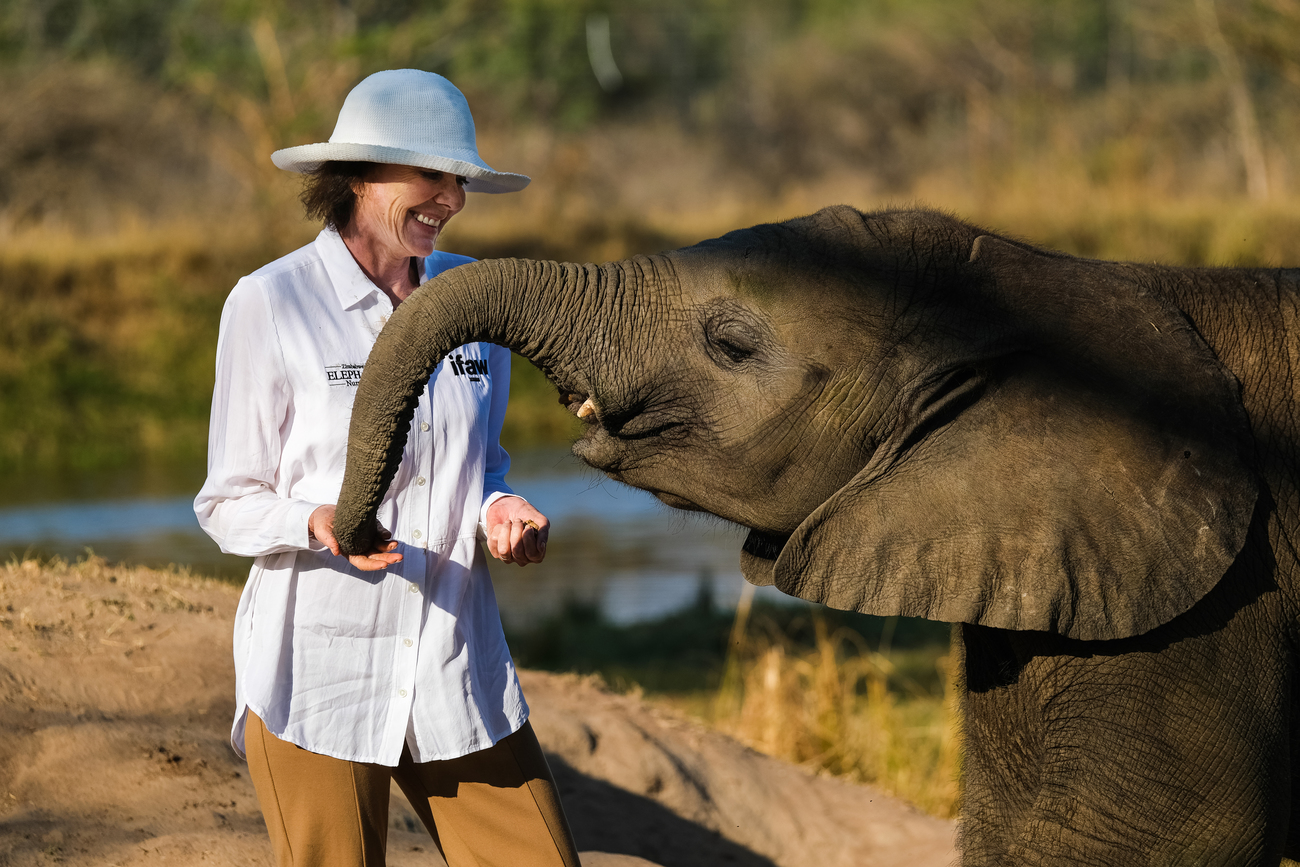celebrating the one year rescue anniversary of Amira the elephant
celebrating the one year rescue anniversary of Amira the elephant

On 2 October 2019, we received an emergency call from a tourism operator in the Mana Pools National Park – an elephant calf was all alone, standing forlornly next to her dead mother. Photographs were sent and immediately the rescue “machine” was put into action. We submitted reports, secured an aircraft, booked a vet and gathered our rescue team. With darkness starting to descend and nowhere to hide in the barren plains, the calf was extremely vulnerable. A team on the ground guarded the calf from predatory attacks while we deployed to the scene.
Strict protocols needed to be followed when working on rescues in National Parks, for the safety of both people and animals. Luckily, the ground crew were able to keep tabs on the calf through the dangerous hours of the night, but come morning, she had left her mother’s side. The IFAW/ZEN team, including IFAW CEO Azzedine Downes, arrived by plane and immediately got to work. Racing against the clock, we spotted the calf, safely sedated her, and transported her back to the plane for our flight to the Zimbabwe Elephant Nursery (ZEN).
Amira's first week at the Nursery
On arrival at the Nursery, Moyo, our little matriarch, immediately communicated with Amira with rumbles, trunk touching, smelling and comfort that we cannot begin to comprehend as humans. Amira was severely traumatised by the entire event, not least the death of her mother, but also the unnatural course of events for her rescue.
In my experience, it is absolutely critical that the emotional transition to a foreign environment is made as smoothly, quietly and compassionately as possible. This transcends all veterinary needs, procedures and physical requirements. Elephant calves are deeply sensitive little animals. They respond very poorly to emotional and environmental stress, let alone physical pain. All of these factors have to be managed in a calm and empathetic way.
Our team is well experienced in dealing with new arrivals. The very small calves attach quickly to the handlers, who stay with them, night and day. They need constant physical and emotional assurance, quiet words and gentle touching.
Amira was estimated to be just shy of a year old when we rescued her. Being a slightly larger calf makes it more difficult for our team to manage her and this is where Moyo is so critical. In fear, the calf will often adopt the fight mode and charge at the handlers. This is dangerous, as someone can be smashed up against a wall or a railing. Moyo shows the calves that we are not to be feared and will often put herself between us and the calf whilst we manage any veterinary issues or feedings.
Her journey back to the wild
Amira has her little eccentricities. She absolutely refused to take a bottle of milk! To this day, she will only drink from a bucket. She loves her milk, which she noisily sucks up through her trunk and pours down her throat with gusto. She is a little butterball! Her appetite knows no bounds and she is always keen to wolf down cubes, rye grass, vegetables, browse and baobab fruits.
She also refuses to walk straight into her stable. She goes in reverse! This does not worry us unduly, we just treat her with gentle patience and a little more time. Before reversing into her stable, she will often dash into some of the other stables, prior to the gates being closed, and steal cubes or green grass!
Amira is deeply attached to Moyo and Unity. She rarely leaves their sides. If she is tired during the day, she will lie down underneath Moyo and have a little nap, just as a wild calf would do.
We are incredibly proud of this little elephant calf, who has progressed into a beautiful young lady, with the prettiest eyes and longest eyelashes I have ever seen. Next year, she will head off to our release site in Panda Masuie forest, where she will begin the long and final journey towards a wild life. We are simply showing her the way home.
-Roxy Danckwerts, founder of Wild Is Life/ZEN
Related content
Our work can’t get done without you. Please give what you can to help animals thrive.